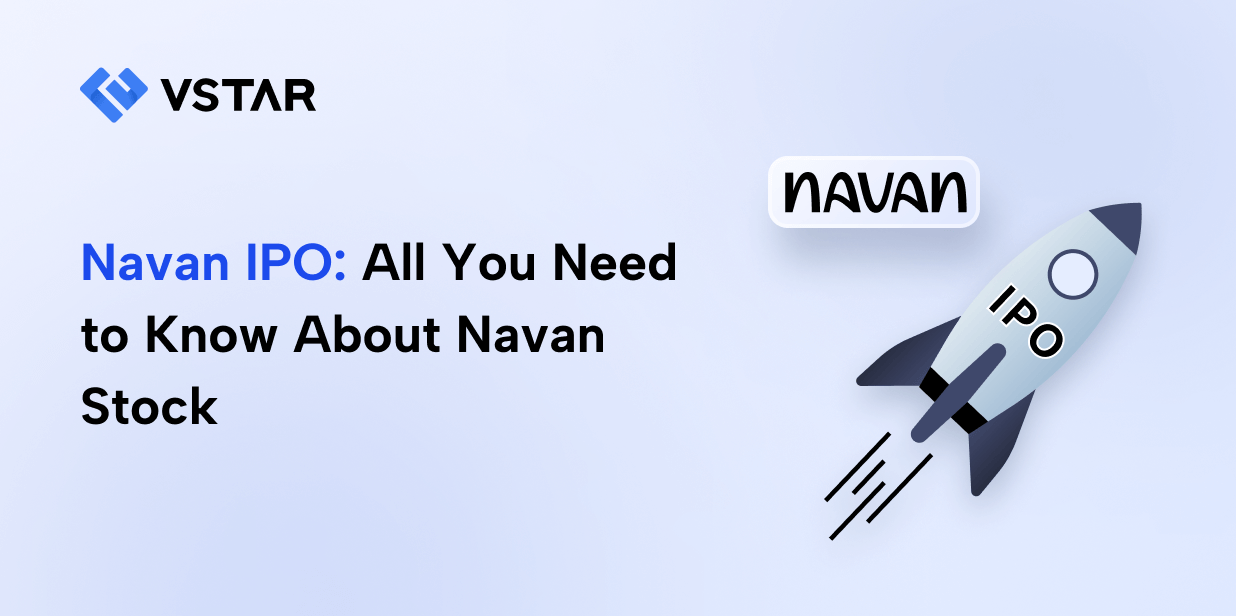Introduction
In the ever-evolving world of investing, the biotech industry has emerged as a dynamic sector with tremendous potential for traders. With innovative solutions and groundbreaking advancements of biotech companies, biotech stocks have become an attractive choice for investors seeking growth opportunities.

Moderna Inc. (NASDAQ: MRNA)
Moderna is a biotechnology company developing messenger RNA (mRNA) therapeutics and vaccines for various diseases. Its mRNA platform is based on the idea of using synthetic mRNA molecules to direct cells to produce proteins that can prevent or treat disease. Moderna's most successful product is its COVID-19 vaccine, which has been approved for emergency use in several countries and regions.
Recent developments and market performance
Moderna has recently achieved significant milestones, including:
- Submitted a Marketing Authorization Application (MAA) to the European Medicines Agency (EMA) for an updated COVID-19 vaccine targeting a specific subline of SARS-CoV-2.
- Initiated rolling submission of a Biologics License Application (BLA) to the U.S. Food and Drug Administration (FDA) for its COVID-19 vaccine in adults.
- Completed enrollment of children aged 6 months to less than 12 years in a Phase 2/3 study of its COVID-19 vaccine.
- Announced positive results from a Phase 2 study of its personalized cancer vaccine in combination with Merck's Keytruda.
MRNA Stock Performance
Moderna's stock price has risen significantly since the beginning of 2020, driven by the development and commercialization of its COVID-19 vaccine.
MRNA stock reached a high of $217.25 on February 8, 2020, after the company reported strong fourth-quarter results and raised its full-year guidance. The stock then declined slightly in the following months as the COVID-19 pandemic impacted the company's operations and demand. The share price rose slightly in June 2023 after the company announced positive results from its Phase 2 trial of its personalized cancer vaccine.
Key metrics
Moderna has a strong pipeline of mRNA therapeutics and vaccines for various diseases, with its COVID-19 vaccine being its most successful product. Moderna's revenues have increased significantly in 2020, 2021, and 2022 due to the contribution of its COVID-19 vaccine sales and collaborations. In the first quarter of 2023, Moderna reported revenues of $3.4 billion, compared to $1.9 billion in the same period of 2022.
Moderna's net income also improved to $1.0 billion in the first quarter of 2023 from $1.2 billion in the first quarter of 2022. Moderna's cash and short-term investments were $11.5 billion at March 31, 2023, compared to $8 billion at March 31, 2021.
Pros and cons of investing in Moderna stock
Some possible pros and cons are:
Pros
- Moderna is a leader in mRNA technology with an innovative and differentiated platform that can address multiple diseases.
- Moderna has a high level of innovation and scientific excellence that enables it to pursue novel targets and modalities for the treatment or prevention of other diseases.
- Moderna has a strong financial performance and growth with high revenues and profits from its COVID-19 vaccine sales and collaborations.
- Moderna has a strategic vision to expand its global presence and market access for its products.
Cons
- Moderna faces intense competition from other biotechnology companies offering similar or alternative vaccines or therapies for COVID-19 and other diseases.
- Moderna is subject to various regulatory risks and uncertainties that could affect the approval and commercialization of its products.
Novavax Inc. (NASDAQ: NVAX)
Novavax is a biotechnology company developing vaccines against serious infectious diseases. Its lead product is the COVID-19 vaccine Nuvaxovid, which is approved in several major markets worldwide. The company also has other candidates in its pipeline, including vaccines for influenza, RSV and Ebola.
Recent developments and market performance
Novavax has recently achieved significant milestones in its business, including:
- WHO Emergency Use Listing for Nuvaxovid, providing access to COVAX and global initiatives.
- Submission of a Biologics License Application to the U.S. FDA for Nuvaxovid based on positive Phase 3 trial results in the U.S. and Mexico.
- Novavax initiated the Phase 2 study in December 2022 and is expected to enroll approximately 2,300 participants at multiple sites in Australia and New Zealand. Top-line results from the trial were expected in mid-2023, but the company has not made any announcements to date.
- Novavax developed a vaccine specifically for the omicron variant of COVID-19 and was expected to deliver it in the first quarter of 2022. However, the company has not yet delivered the vaccine because it hasn't received regulatory approval.
NVAX stock performance
Novavax's stock price has fluctuated significantly since the beginning of 2020, reflecting the progress and challenges in the development and commercialization of its COVID-19 vaccine.
NVAX stock reached a high of $290 on February 8, following the announcement of positive results from the UK Phase 3 trial of Nuvaxovid. The stock then gradually declined in the following months due to regulatory delays and manufacturing issues. The stock price rebounded slightly in June 2023, after receiving the WHO Emergency Use Listing and submitting the U.S. FDA application for Nuvaxovid.
Key metrics
Novavax has a promising pipeline of vaccines for several infectious diseases, with Nuvaxovid being its most advanced candidate.
Novavax reported revenues of $323.8 million and a net loss of $323.8 million for the quarter. The company's cash and short-term investments increased to $1874.8 million as of March 31, 2023.
The company's financial performance in the first quarter of 2023 was below expectations. Novavax had previously forecast revenues of $400 million and a net loss of $200 million for the quarter. The company attributed the shortfall to a number of factors, including delays in the rollout of its COVID-19 vaccine in some countries.
Despite the disappointing results, Novavax remains confident in its long-term prospects. The company has a pipeline of promising vaccine candidates in development, including a COVID-19 booster vaccine and an influenza vaccine. Novavax also has a number of ongoing partnerships with governments and pharmaceutical companies.
Pros and cons of investing in Novavax stock
Some possible pros and cons are:
Pros
- Novavax has a novel vaccine technology that uses recombinant protein nanoparticles and adjuvants to induce strong immune responses.
- Novavax has a global market opportunity for its COVID-19 vaccine, particularly in low- and middle-income countries that need affordable and accessible vaccines.
- Novavax has a diversified pipeline of vaccines that address high unmet medical needs and large market opportunities.
Cons
- Novavax faces intense competition from other manufacturers of COVID-19 vaccines who have already obtained regulatory approvals and market share.
- Novavax is subject to various regulatory risks and uncertainties that could affect the approval and commercialization of its vaccines.
- Novavax is dependent on the continued demand and supply of its COVID-19 vaccine, which could be affected by factors such as new variants, vaccine hesitancy, or the availability of other vaccines.
AbbVie Inc. (NYSE: ABBV)
AbbVie is a biopharmaceutical company that develops and commercializes medicines for chronic and complex diseases. Its flagship product is Humira, a biologic treatment for autoimmune diseases such as rheumatoid arthritis and psoriasis. Other products include Botox, Imbruvica, Rinvoq, Venclexta, Vraylar, and Mavyret.
Recent developments and market performance
AbbVie has recently achieved significant milestones, including:
- Acquisition of Allergan, a global pharmaceutical company known for products such as Botox, eye care, neuroscience, and medical aesthetics.
- Approval of Rinvoq, a JAK inhibitor for the treatment of rheumatoid arthritis and other inflammatory diseases.
- Approval of Venclexta, a BCL-2 inhibitor for the treatment of chronic lymphocytic leukemia and acute myeloid leukemia.
- Launch of Mavyret, an eight-week pan-genotypic regimen for the cure of hepatitis C.
ABBV stock performance
AbbVie's stock price has steadily increased since the beginning of 2020, reflecting the growth and diversification of its product portfolio and pipeline.
ABBV stock reached a high of $128.93 on June 8 after the company reported strong first-quarter results and raised its full-year guidance. The stock then dipped slightly in the following weeks, but remained above $100 for most of the time. The share price rose again in June 2023 after the company announced positive results from its Phase 3 trial of epcoritamab, a blood cancer therapy developed in partnership with Genmab.
Key metrics
AbbVie has a robust pipeline of drugs across multiple therapeutic areas, including oncology, immunology, neuroscience, virology and ophthalmology. AbbVie's revenues have increased significantly in 2020, 2021, and 2022 due to the strong performance of its products and the integration of Allergan.
In the first quarter of 2023, AbbVie reported revenues of $12.2 billion, compared with $13 billion in the same period of 2022. AbbVie's net income also improved to $5.1 billion in the first quarter of 2023 from $4.1 billion in the first quarter of 2022. AbbVie's cash and short-term investments were $9.8 billion on March 31, 2023, compared to $7.9 billion on March 31, 2022.
Pros and cons of investing in AbbVie stock
Some possible pros and cons are:
Pros
- AbbVie is a leader in the biopharmaceutical industry with a diversified product portfolio and a strong pipeline of innovative medicines.
- AbbVie has a proven track record of revenue and earnings growth and cash flow generation.
- AbbVie has a strategic vision to expand its presence in new markets and therapeutic areas through acquisitions and partnerships.
Cons
- AbbVie faces intense competition from other biopharmaceutical companies offering similar or alternative products or biosimilars.
- AbbVie is subject to various regulatory risks and uncertainties that could affect the approval and commercialization of its products.
- AbbVie is dependent on continued demand and supply for its products, which could be affected by factors such as patent expirations, market access challenges or pricing pressures.
Vertex Pharmaceuticals Inc. (NASDAQ: VRTX)
Vertex is a biotechnology company that develops and commercializes medicines for serious and life-threatening diseases. Its main product is Trikafta, a triple combination therapy for the treatment of cystic fibrosis. Other products include Kalydeco, Orkambi, Symdeko and Incivek.
Recent developments and market performance
Vertex has achieved some notable milestones in its business recently. It announced:
- Trikafta's approval in multiple countries, expanding its cystic fibrosis therapy reach.
- Acquiring Exonics Therapeutics and expanding collaboration with CRISPR Therapeutics to enhance gene editing capabilities for Duchenne muscular dystrophy and other diseases.
- Initiating Phase 3 trials of VX-121/tezacaftor/VX-561, a once-daily triple combination regimen for cystic fibrosis.
- Initiating Phase 2 trials of VX-147, an oral small molecule inhibitor for APOL1-mediated kidney disease.
- Initiating Phase 1 trials of VX-880, a novel cell therapy for type 1 diabetes.
VRTX stock performance
Vertex's stock price has declined slightly since the beginning of 2020, reflecting the high expectations and competitive pressures in the biotechnology sector.
VRTX stock reached a high of $293 on July 20, 2020, after the company reported positive results from its Phase 3 trial of Trikafta in children with cystic fibrosis. The stock then gradually declined over the following months on concerns about the company's growth potential and pipeline diversification. The share price rose slightly in June after the company announced positive results from its Phase 2 trial of VX-147 in kidney disease.
Key metrics
Vertex has a strong pipeline of drugs for various diseases, with Trikafta being its most successful product. Vertex's revenues have increased significantly in 2020, 2021, and 2022 due to the strong demand and adoption of Trikafta and its other cystic fibrosis therapies.
In the first quarter of 2023, Vertex reported revenues of $2.37 billion, compared to $1.72 billion in the same period of 2022. Vertex's net income also improved from $837 million in the first quarter of 2022 to $978 million in the first quarter of 2023. Vertex's cash and short-term investments were $11.5 billion at March 31, 2023, compared to $6.66 billion at March 31, 2021.
Pros and cons of investing in Vertex stock
Some possible pros and cons are:
Pros
- Vertex has a leading position in the cystic fibrosis market with its innovative and differentiated therapies that improve patient outcomes.
- Vertex has a high level of innovation and scientific excellence that enables it to pursue novel targets and modalities for the treatment of other diseases.
- Vertex has a strong financial performance and growth with high margins and cash flow generation.
- Vertex has a strategic vision to expand its global presence and market access for its products.
Cons
- Vertex faces intense competition from other biotechnology companies that are developing similar or alternative therapies for cystic fibrosis and other diseases.
- Vertex is subject to various regulatory risks and uncertainties that could affect the approval and commercialization of its products.
- Vertex is dependent on the continued demand and supply of its products, which could be affected by factors such as pricing pressures, reimbursement challenges, or safety issues.
Gilead Sciences Inc. (NASDAQ: GILD)
Gilead is a biopharmaceutical company focused on the development and commercialization of antiviral medicines for the treatment of HIV/AIDS, hepatitis B, hepatitis C, influenza, and COVID-19. Its flagship products include Truvada, Atripla, Biktarvy, Descovy, Viread, Vemlidy, Harvoni, Epclusa, Vosevi, Tamiflu and Veklury. Other products include Yescarta, Trodelvy, Zydelig and AmBisome for the treatment of cancer and fungal infections.
Recent developments and market performance
Gilead has achieved some notable milestones in its business recently. It announced:
- The acquisition of Immunomedics, a biotechnology company that developed Trodelvy, a first-in-class antibody-drug conjugate for the treatment of metastatic triple-negative breast cancer
- The acquisition of MYR GmbH, a German biotechnology company developing Hepcludex, a first-in-class entry inhibitor for the treatment of chronic hepatitis delta virus infection
- The approval of Veklury in the U.S., Europe, Japan, and other countries as the first and only approved treatment for COVID-19
- The approval of Trodelvy in the U.S. as the first treatment for metastatic urothelial cancer with high levels of Trop-2 expression
- The approval of Jyseleca in Europe and Japan as a once-daily oral JAK inhibitor for the treatment of moderate-to-severe rheumatoid arthritis.
GILD stock performance
Gilead's stock price has declined slightly since the beginning of 2020, reflecting the challenges and uncertainties in the biopharmaceutical sector.
GILD stock reached a high of $85.97 on April 29, 2020, after reporting positive results from its Phase 3 trial of Veklury for COVID-19. The stock then gradually declined over the following months on concerns about the growth potential and patent expirations of its HIV franchise. The share price rose slightly in June after the company announced positive results from its Phase 3 trial of lenacapavir for HIV prevention.
Key metrics
Gilead has a strong pipeline of drugs for various diseases, with Veklury and Trodelvy being the most recent launches. Gilead's revenues have increased slightly in 2020 and 2021 due to the contribution of Veklury and Trodelvy sales. In the first quarter of 2023, Gilead reported revenues of $6.4 billion, compared to $6.4 billion in the same period of 2022.
Gilead's net income also improved to $1.9 billion in the first quarter of 2023 from $1.7 billion in the first quarter of 2022. Gilead's cash and short-term investments were $7.2 billion on March 31, 2023, compared to $25 billion on March 31, 2021.
Pros and cons of investing in Gilead stock
Some possible pros and cons are:
Pros
- Gilead has a leading position in the antiviral market with its innovative and differentiated therapies that improve patient outcomes.
- Gilead has a high level of innovation and scientific excellence that enables it to pursue novel targets and modalities for the treatment of other diseases.
- Gilead has a strong financial performance and growth with high margins and cash flow generation.
Cons
- Gilead faces intense competition from other biopharmaceutical companies offering similar or alternative therapies for HIV, hepatitis, COVID-19, and cancer.
- Gilead is subject to various regulatory risks and uncertainties that could affect the approval and commercialization of its products.
- Gilead is dependent on continued demand and supply for its products, which could be affected by factors such as pricing pressures, reimbursement challenges or safety issues.
Amgen Inc. (NASDAQ: AMGN)
Amgen is a biotechnology company that develops and commercializes innovative human pharmaceuticals for the treatment of serious medical conditions. Its flagship product is Enbrel, a biologic treatment for rheumatoid arthritis and other inflammatory diseases. Other products include Prolia, Xgeva, Neulasta, Aranesp, Epogen, Otezla, Repatha, Blincyto, Kyprolis and Aimovig. Amgen has a strong pipeline of drugs in several therapeutic areas, including oncology, cardiovascular, neuroscience, nephrology and biosimilars.
Recent developments and market performance
Amgen has achieved some notable milestones in its business recently. It announced:
- Acquisition of Five Prime Therapeutics, a clinical-stage biotech company behind bemarituzumab, a groundbreaking antibody for gastric cancer.
- Acquisition of Rodeo Therapeutics, a preclinical-stage biotech company specializing in 15-PGDH inhibitors for tissue repair and regeneration.
- Lumakras approval in the U.S., Europe, Japan, and other countries as the first targeted therapy for KRAS G12C-mutated non-small cell lung cancer.
- Riabni approval in the U.S. as a biosimilar to Rituxan for the treatment of non-Hodgkin's lymphoma and rheumatoid arthritis.
AMGN stock performance
Amgen's stock price has increased slightly since the beginning of 2020, reflecting the resilience and diversification of its product portfolio and pipeline.
AMGN stock reached a high of $256.69 on February 19, 2020, after reporting strong fourth quarter results and raising its full year guidance. The stock price then declined slightly in the following months, due to the impact of the COVID-19 pandemic on its business operations and demand. The stock price rose slightly in June 2023, after announcing positive results from its Phase 3 trial of sotorasib in non-small cell lung cancer.
Key metrics
Amgen has a strong pipeline of drugs for various diseases, with Lumakras and Riabni being its most recent launches. Amgen's revenues have increased slightly in 2020, 2021, and 2022 due to the contribution of its new products and biosimilars. In the first quarter of 2023, Amgen reported revenues of $6.6 billion, compared to $5.9 billion in the same period of 2022.
Amgen's net income also improved to $2.5 billion in the first quarter of 2023 from $1.9 billion in the first quarter of 2022. Amgen's cash and short-term investments were $13.7 billion on March 31, 2023, compared to $13 billion on March 31, 2021.
Pros and cons of investing in Amgen stock
Some possible pros and cons are:
Pros
- Amgen is a leader in the biotechnology industry with innovative and differentiated therapies that improve patient outcomes.
- Amgen has a high level of innovation and scientific excellence that enables it to pursue novel targets and modalities for the treatment of other diseases.
- Amgen has a strong financial performance and growth with high margins and cash flow generation.
Cons
- Amgen faces intense competition from other biotechnology companies offering similar or alternative therapies for inflammatory diseases, cancer, cardiovascular diseases and biosimilars.
- Amgen is subject to various regulatory risks and uncertainties that could affect the approval and commercialization of its products.
- Amgen depends on continued demand and supply for its products, which could be affected by factors such as patent expirations, market access challenges, or pricing pressures.
Regeneron Pharmaceuticals (NASDAQ: REGN)
Regeneron is a biotechnology company that discovers, develops and commercializes medicines for people with serious medical conditions. Its lead product is Eylea, a biological therapy for eye diseases such as age-related macular degeneration and diabetic retinopathy. Regeneron has a strong pipeline of medicines for a variety of diseases, including immuno-oncology, infectious diseases, inflammation and rare diseases.
Recent developments and market performance
Regeneron has achieved some notable milestones in its business recently. It announced:
- The acquisition of Decibel Therapeutics, a clinical-stage biotechnology company developing gene therapies for hearing loss1
- The approval of Evkeeza in the U.S., Europe, Japan, and other countries as the first and only treatment for homozygous familial hypercholesterolemia2
- The approval of Inmazeb in the U.S. as the first FDA-approved treatment for Ebola virus infection3
- The approval of Libtayo in the U.S., Europe, Japan, and other countries as the first immunotherapy for advanced basal cell carcinoma.
- The approval of REGEN-COV in the U.S. as an emergency use authorization for the prevention and treatment of COVID-19.
REGN stock performance
Regeneron's stock price has increased slightly since the beginning of 2020, reflecting the growth and diversification of its product portfolio and pipeline.
REGN stock reached a high of $644.64 on July 20, 2020, after reporting positive results from its Phase 3 trial of REGEN-COV for COVID-19. The stock price then declined slightly in the following months, due to the impact of the COVID-19 pandemic on its business operations and demand. The stock price rose slightly in June 2023, after announcing positive results from its Phase 3 trial of cemiplimab in non-small cell lung cancer.
Key metrics
Regeneron has a strong pipeline of drugs for various diseases, with Evkeeza and REGEN-COV being its most recent launches. Regeneron's revenues have increased slightly in 2020 and 2021 due to the contribution of its new products and collaborations. In the first quarter of 2023, Regeneron reported revenues of $3.2 billion, compared to $2.5 billion in the same period of 2022. Regeneron's net income also improved from $1.1 billion in the first quarter of 2022 to $1.2 billion in the first quarter of 2023. Regeneron's cash and short-term investments were $6.5 billion on March 31, 2023, compared to $6 billion on March 31, 2021.
Pros and cons of investing in Regeneron stock
Some possible pros and cons are:
Pros
- Regeneron is a leader in the biotechnology industry with innovative and differentiated therapies that improve patient outcomes.
- Regeneron has a high level of innovation and scientific excellence that enables it to pursue novel targets and modalities for the treatment of other diseases.
- Regeneron has a strong financial performance and growth with high margins and cash flow generation.
Cons
- Regeneron faces intense competition from other biotechnology companies offering similar or alternative therapies for ophthalmic, allergic, cardiovascular, cancer and COVID-19 diseases.
- Regeneron is subject to various regulatory risks and uncertainties that could affect the approval and commercialization of its products.
- Regeneron is dependent on continued demand and supply for its products, which could be affected by factors such as pricing pressures, reimbursement challenges or safety issues.
Comparison of Key Metrics
The following table compares the key metrics of the seven biotechnology companies as of July 3, 2023.
|
Company |
Market Cap (in billions) |
Revenue Growth (TTM) |
Operating Margin (TTM) |
P/E Ratio (Fwd) | |
|
Moderna |
$46.40 |
-33.40% |
42.10% |
8.3 | |
|
Novavax |
$17.20 |
2837.90% |
-16.90% |
-4.9 | |
|
AbbVie |
$134.30 |
37.90% |
28.60% |
7.5 | |
|
Vertex |
$90.60 |
-10.10% |
38.80% |
11.3 | |
|
Gilead |
$96.10 |
-10.00% |
25.70% |
-4.9 | |
|
Amgen |
$118.60 |
-4.50% |
36.00% |
-16 | |
|
Regeneron |
$79.71 |
6.64% |
39.91% |
5.45 |
As you can see, Novavax still has the lowest market cap, operating margin, and P/E ratio of the 8 companies listed. This suggests that it may be the most undervalued company based on valuations.
However, it is important to note that valuations are only one factor to consider when investing in a stock. Other factors, such as the company's growth prospects, product pipeline, and financial health, should also be considered.
In the case of Novavax, the company is still in the early stages of commercializing its COVID-19 vaccine. It also faces competition from other COVID-19 vaccines, such as those from Moderna and Pfizer. As a result, there is some uncertainty about the company's future growth prospects.
Overall, Novavax may be an undervalued stock based on valuations. However, investors should carefully consider the company's other risks before investing.
Factors to Consider When Trading Biotech Stocks
Biotechnology stocks are some of the most exciting and rewarding investments in the stock market, but they also come with high volatility and risk. Here are some factors to consider when trading biotech stocks:
Volatility and risk associated with biotech stocks
Biotech stocks are subject to various sources of uncertainty and unpredictability, such as:
- The outcome of clinical trials, which can be positive, negative, or mixed, and can have a significant impact on the stock price and the future prospects of the company.
- The approval and commercialization of new drugs, which may be delayed, denied, or restricted by regulatory agencies, such as the FDA or the EMA, or may face competition from other products in the marketplace.
- Patent protection and litigation for new drugs, which may affect the exclusivity and profitability of the Company's products and expose it to legal challenges from competitors or generic manufacturers.
- Market demand and pricing for new drugs, which may depend on factors such as unmet medical needs, the size of the patient population, reimbursement policies and the availability of alternatives.
These factors can cause biotech stocks to experience large price swings, both up and down, in a short period of time. Therefore, traders should be prepared for high volatility and risk when investing in biotech stocks, and use appropriate risk management strategies, such as diversification, stop loss orders, and position sizing.
Key catalysts that can affect biotech stock prices
Biotech stocks are driven by catalysts, which are events or announcements that can cause a significant change in the stock price. Some of the key catalysts that can affect biotech stock prices are:
- Clinical trial results, which can show the safety and efficacy of a new drug at various stages of development, from preclinical to phase 4. Positive results can boost the stock price and increase the chances of approval and commercialization. Negative results can lower the stock price and jeopardize the future of the drug.
- Regulatory decisions, which can grant or deny approval for a new drug or a new indication for an existing drug. Approval can increase the stock price and open up new market opportunities. Denial can lower the stock price and limit the growth potential.
- Product launches, which can indicate the initial sales and market penetration of a new drug. Successful launches can increase the stock price and generate revenue streams. Unsuccessful launches can lower the stock price and erode market share.
- Earnings reports, which can show the financial performance and outlook of a biotech company. Strong earnings can increase the stock price and reflect the profitability and growth of the company. Weak earnings can lower the stock price and signal financial difficulties or challenges.
Traders should keep track of these catalysts and their expected dates, as they can create trading opportunities or risks. Traders should also monitor how the market reacts to these catalysts, as they can sometimes be priced in or overreacted to.

Technical Analysis and Chart Patterns for Biotech Stock Trading
- Technical analysis is a method of analyzing historical price movements and patterns to predict future trends and identify trading signals. Technical analysis can be useful for trading biotech stocks because it can help traders to
- Identify support and resistance levels, which are price points where buyers or sellers tend to enter or exit the market. Support levels act as floors that prevent further price declines. Resistance levels act as ceilings that limit further price increases.
- Identify trend lines and channels, which are lines that connect successive highs or lows of a price movement. Trend lines indicate the direction and strength of a trend. Channels indicate the range of price movements within a trend.
- Identify chart patterns, which are shapes or formations that appear on a price chart. Chart patterns indicate potential price movements based on past behavior. Some common chart patterns for biotechnology stocks include:
- Cup and handle, which is a bullish pattern that resembles a cup with a handle. It indicates a period of consolidation followed by a breakout to higher prices.
- Head and shoulders, which is a bearish pattern that resembles a head with two shoulders. It indicates a reversal from an uptrend to a downtrend.
- Triangle, which is a neutral pattern that resembles a triangle. It indicates a narrowing range of price action before a breakout in either direction.
Traders should use technical analysis tools and indicators, such as moving averages, volume, momentum, oscillators, and candlestick patterns to supplement their analysis and confirm their trading signals.
Trade Biotech Stocks CFDs with VSTAR
If you are interested in trading biotech stocks, you can do so with VSTAR, a leading online trading platform that offers contracts for difference (CFDs) on various financial instruments, including biotech stocks. CFDs are derivatives that allow you to speculate on the price movements of an underlying asset without owning it. With CFDs, you can:
- Trade biotech stocks with leverage, which means you can open larger positions with a smaller initial deposit. Leverage can magnify your profits as well as your losses.
- Trade biotech stocks in both directions, which means you can benefit from both rising and falling prices. You can go long (buy) when you expect the price to rise, or short (sell) when you expect the price to fall.
- Trade biotech stocks with low commissions and spreads, which means you can save on trading costs and enjoy competitive pricing.
- Trade biotech stocks with advanced trading tools and features, such as technical analysis, charting, indicators, signals, alerts, and risk management tools.
VSTAR offers CFDs on some of the most popular biotech stocks in the market, including Moderna, Novavax, AbbVie, Vertex, Gilead, Amgen, and Regeneron. You can access these stocks and more through VSTAR's user-friendly and intuitive trading platform, which is available on the web, desktop, and mobile devices. You can also benefit from VSTAR's educational resources, customer support, and security measures.


Conclusion
In this article, we have reviewed the top 7 best biotech stocks to invest in 2023 based on their product portfolio, pipeline, financial performance, and valuation. These stocks are Moderna Inc, Novavax Inc, AbbVie Inc, Vertex Pharmaceuticals Inc, Gilead Sciences Inc, Amgen Inc, and Regeneron Pharmaceuticals Inc.
The biotech industry is one of the most dynamic and promising sectors of the stock market. It offers investors the opportunity to participate in the discovery and development of new drugs that can improve the lives of millions of people around the world. However, it also involves high volatility and risk due to the uncertainty and complexity of the drug development process.
Therefore, if you're considering investing in biotech stocks, you should conduct your own research and analysis before making any decisions. You should also use appropriate risk management strategies and tools to protect your capital and maximize your returns.
If you are ready to start trading Biotech Stocks CFDs with VSTAR, open your free account today and enjoy the benefits of our online trading platform. You can access 1000 instruments with low commissions and spreads, leverage your positions and use advanced trading tools and features to enhance your trading experience.
Start trading biotech stocks today with VSTAR!


















